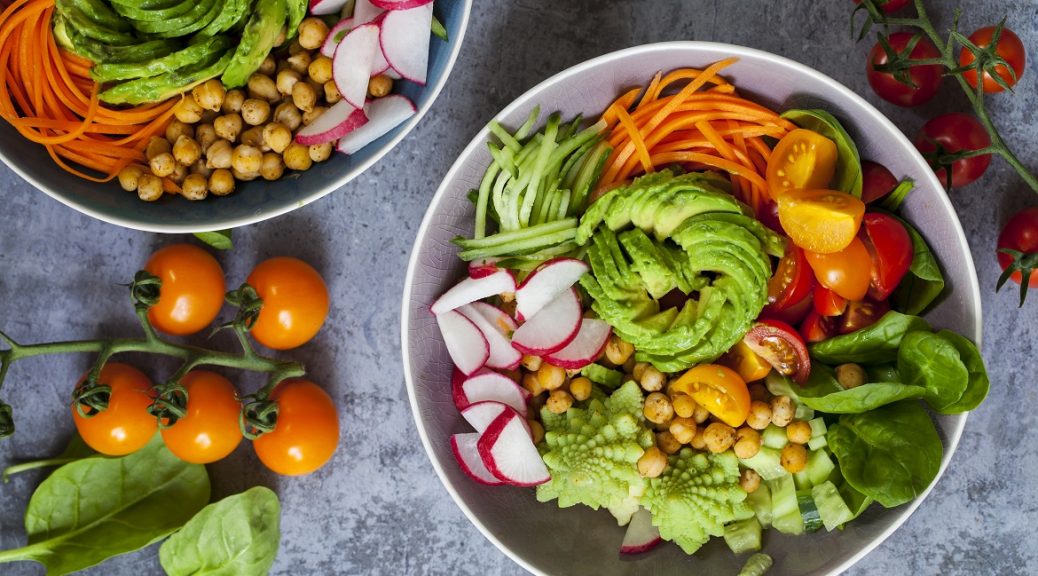
#Veganuary – Top Tips for Introducing a Successful Vegan Diet
By nutritionist Lily Soutter, a Brand Ambassador for Garden of Life
#Veganuary has successfully hit the UK and whether you’ve gone full vegan or chosen the more flexi-vegan approach, you may already be starting to feel the benefits.
But, much like any lifestyle or diet change, there is always a tricky stage – that moment when you begin questioning the benefits in favour of a search for satisfaction. Perhaps you’re feeling tired and you may even be starting feel anxious about how you’ll continue to create plant-based meals that serve all your body needs.
In assessing this further for yourself and your needs, it is important to consider the following key factors:
Vitamin D3
Food sources of vitamin D come from fish and egg yolks, meaning that vegans may be at a greater risk for a low vitamin D status. However, as vitamin D is known as the sunshine vitamin, it is possible for vegans to obtain their vitamin D from sunlight or even fortified foods – however this can be challenging on the sunlight side in the winter.
Vitamin B12
Vitamin B12 is an essential nutrient, which is especially important for the formation of blood as well as brain function. Deficiencies can result in fatigue, megaloblastic anaemia, early dementia, increased risk of heart disease, nerve dysfunction, forgetfulness, lack of coordination, as well as the possible development neurological disorders in babies of breast-feeding mothers.
This nutrient tends to be found in animal products (apart from some types of algae), therefore it has been shown that as much as 92% of vegans are deficient in this critical vitamin.
Small amounts of B12 can be found in some types of algae and bacteria, however the bioavailability of such forms has been disputed.
For those following a vegan diet, the most effective way of ensuring that you are receiving an adequate intake vitamin B12 is to supplement with a sublingual spray, liquid or capsule.
Heme-iron
Heme iron is a specific type of iron, which is only found in meat and fish and is absorbed and utilised at a much greater rate than plant-based non-heme iron. It is also the most easily absorbed iron into the body and so a better source of iron from this view.
The absorption of plant-based non-heme iron can also be blocked by anti-nutrients called phytic acid, which means vegans have a much greater risk of developing anaemia.
When embarking on vegan diet it is important to include adequate amounts of iron rich plant-based food like legumes, quinoa, tofu, tempeh, pumpkin seeds, and dark green leafy vegetable like spinach, kale.
There is good news however, you can increase absorption of iron fourfold, by taking a vitamin C supplement at meal times.
Omega-3 fats
These fats are primarily found in oily fish and are essential for both brain and heart health. They also play a positive role in depression and anxiety as well as inflammatory conditions, and line every cell within the body. These oils shouldn’t go amiss in the diet, they are also brilliant for glowing skin and shiny hair.
In comparison to oily fish, there are very small amounts of omega-3 oils found in plant-based food. The omega-3 oils found in plants also need be converted to the active form, however the conversion rate is not wholly efficient. So, in order to obtain a sufficient amount of omega-3 fats, daily dietary intake of flax seeds, flax seed oil, chia seeds, chia seed oil and walnuts is essential.
Calcium
Calcium is actually readily available in vegan diets, for those following a wholefood vegan diet. Dark green leafy vegetables are always a great choice as they also rich in magnesium, which can aid with the absorption of calcium. When choosing dairy-free milks, ensure that they are fortified with calcium.
Other calcium rich plant-based foods include: broccoli, tender stem broccoli, collard greens, spinach, kale, edamame, bok choy, figs, dried figs – very high, white beans, okra, tofu – very high in calcium, almonds – raw unsalted, flax seeds, tahini, parsley, cabbage, sesame seeds, molasses.
High Quality Protein
Vegan diets can often be low in high quality protein, so this is a really key watch as protein is an essential dietary component, and it is literally the building blocks of the body. Protein is vital to make muscles, organs and even hair, skin and nails. It is also essential for our immune system, as well manufacturing hormones and neurotransmitters such as serotonin.
A mix of protein sources should be included at each meal and snack to ensure this need is looked after, such as: tofu, tempeh beans, lentils, chickpeas, peas, quinoa, nuts and seeds, and vegan protein powder.

About Lily Soutter
Nutritionist Lily Soutter is a Brand Ambassador for Garden of Life, makers of premium quality, whole food supplements with full traceability of ingredients. She graduated from Newcastle University with a BSc (Hons) degree in Food and Human Nutrition where she was awarded the Sage Faculty for Excellence Scholarship. She then went on to gain a Nutritional Therapy Diploma from the Institute of Optimum Nutrition. Lily’s extensive knowledge of the science of food and health, enables her to regularly write for The Times, The Telegraph, The Independent, The Daily Mail, Women’s Health and Cosmopolitan. Her frequent TV appearances include ITV’s prime time series Save Money: Lose Weight with Dr Ranj Singh. Lily sees clients from her clinic in Chelsea and from the Portobello Clinic, a private medical practice based in Notting Hill.